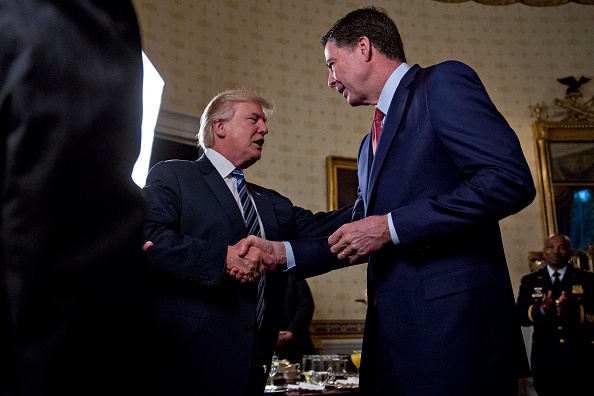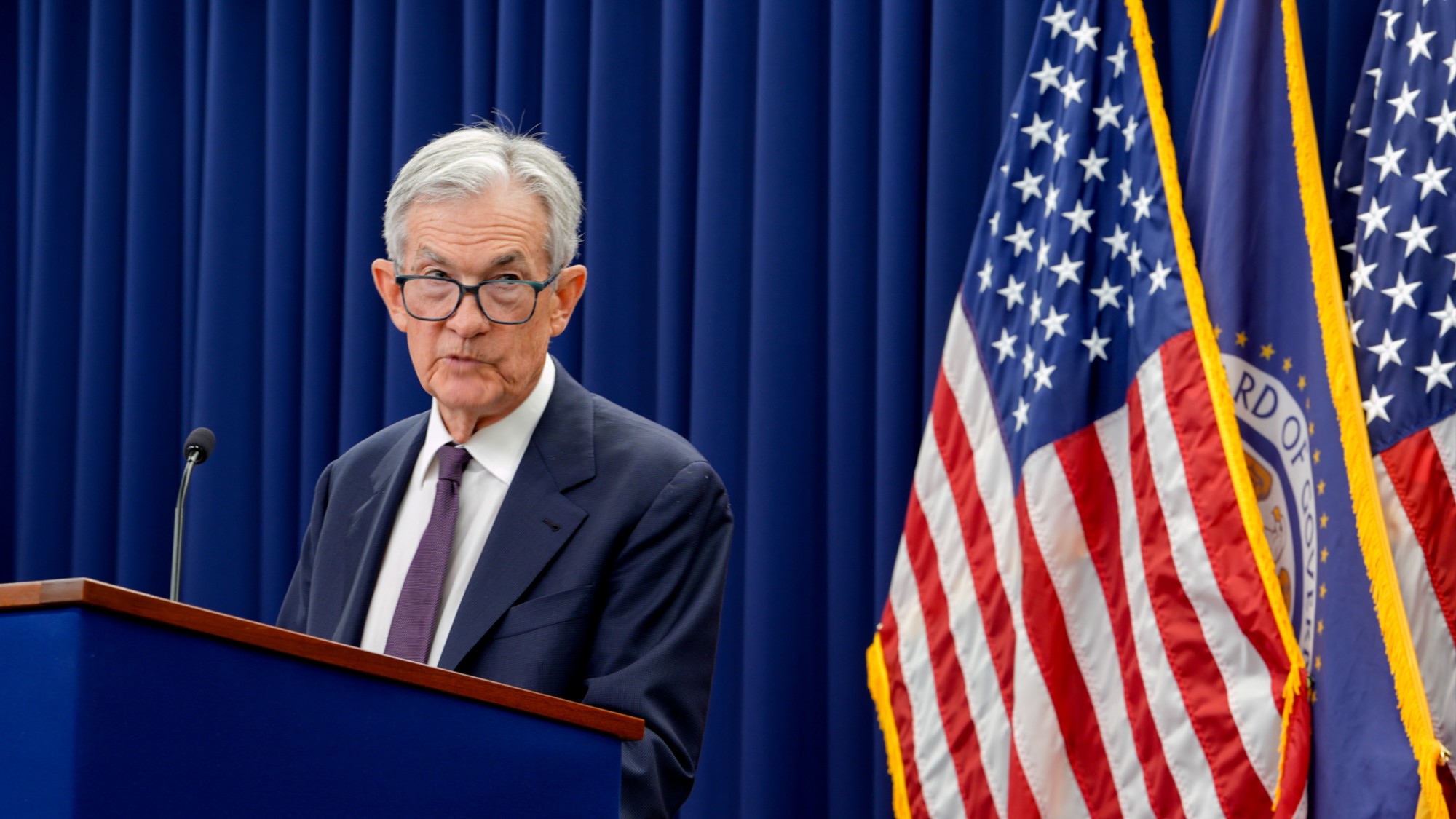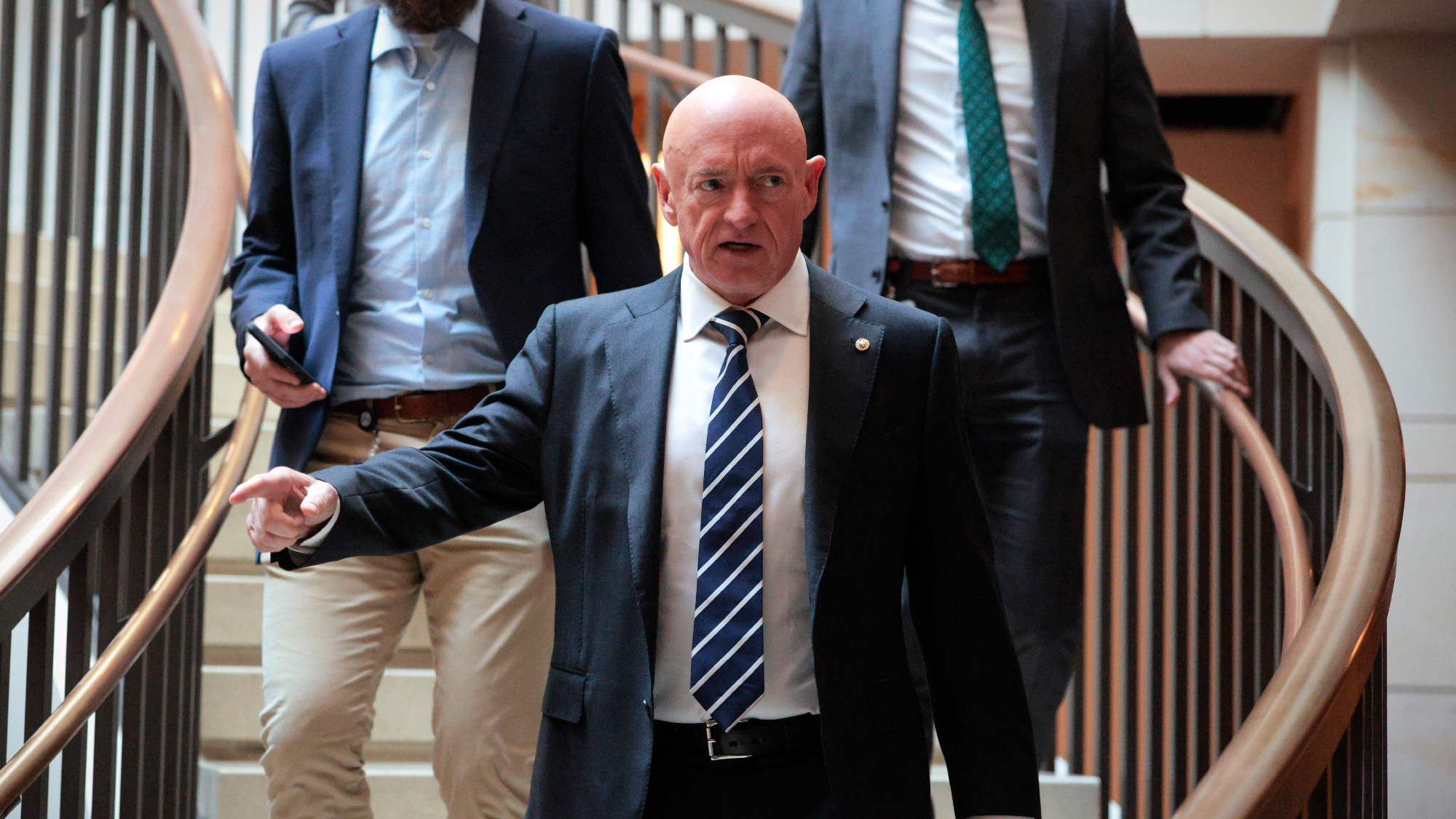Friend describes James Comey's attempts to fend off Trump's embrace, doubts about Rod Rosenstein


A free daily email with the biggest news stories of the day – and the best features from TheWeek.com
You are now subscribed
Your newsletter sign-up was successful
On Thursday, The New York Times reported that President Trump had pressed James Comey, then FBI director, to spread word that he was not personally under federal investigation. That detail was news to Benjamin Wittes, a friend of Comey's and a named source for other anecdotes in the Times article, but Wittes wanted to elaborate on his casual lunchtime conversations with Comey, he wrote in Lawfare Thursday night, because after reading the article, "I immediately understood certain things Comey had said to me over the previous few months in a different, and frankly more menacing, light."
Wittes' general impression is that Comey was preoccupied with protecting the FBI from inappropriate White House interference and also from attempts to "absorb him into Trump's world — to make him part of the team." But the details Wittes recalls are pretty interesting, like his elaboration of Comey's attempt to avoid Trump's literal embrace at a post-inaugural reception in the White House Blue Room:
As he told me the story, he tried hard to blend into the background and avoid any one-on-one interaction [with Trump]. He was wearing a blue blazer and noticed that the drapes were blue. So he stood in the back, right in front of the drapes, hoping Trump wouldn't notice him camouflaged against the wall. ... The meeting was nearly over, he said, and he really thought he was going to get away without an individual interaction. But when you're 6 foot, 8 inches tall, it's hard to blend in forever, and Trump ultimately singled him out. ... Comey took the long walk across the room determined, he told me, that there was not going to be a hug. ... Look at the video, and you'll see Comey pre-emptively reaching out to shake hands. Trump grabs his hand and attempts an embrace. The embrace, however, is entirely one sided. Comey was disgusted. [Wittes, Lawfare]
The other detail that retroactively struck Wittes was that Comey, to his surprise, was wary about Deputy Attorney General Rod Rosentein, who hadn't been confirmed at that point. "Rod is a survivor," Comey said, according to Wittes, and political survival doesn't come without compromises. Since Comey had been asked to pledge personal loyalty to Trump, Wittes surmises, "he was asking himself, I suspect: What loyalty oath had Rosenstein been asked to swear, and what happened at whatever dinner that request took place?" Read the entire post at Lawfare.
The Week
Escape your echo chamber. Get the facts behind the news, plus analysis from multiple perspectives.

Sign up for The Week's Free Newsletters
From our morning news briefing to a weekly Good News Newsletter, get the best of The Week delivered directly to your inbox.
From our morning news briefing to a weekly Good News Newsletter, get the best of The Week delivered directly to your inbox.
A free daily email with the biggest news stories of the day – and the best features from TheWeek.com
Peter has worked as a news and culture writer and editor at The Week since the site's launch in 2008. He covers politics, world affairs, religion and cultural currents. His journalism career began as a copy editor at a financial newswire and has included editorial positions at The New York Times Magazine, Facts on File, and Oregon State University.
-
 Political cartoons for February 7
Political cartoons for February 7Cartoons Saturday’s political cartoons include an earthquake warning, Washington Post Mortem, and more
-
 5 cinematic cartoons about Bezos betting big on 'Melania'
5 cinematic cartoons about Bezos betting big on 'Melania'Cartoons Artists take on a girlboss, a fetching newspaper, and more
-
 The fall of the generals: China’s military purge
The fall of the generals: China’s military purgeIn the Spotlight Xi Jinping’s extraordinary removal of senior general proves that no-one is safe from anti-corruption drive that has investigated millions
-
 Trump sues IRS for $10B over tax record leaks
Trump sues IRS for $10B over tax record leaksSpeed Read The president is claiming ‘reputational and financial harm’ from leaks of his tax information between 2018 and 2020
-
 Trump, Senate Democrats reach DHS funding deal
Trump, Senate Democrats reach DHS funding dealSpeed Read The deal will fund most of the government through September and the Department of Homeland Security for two weeks
-
 Fed holds rates steady, bucking Trump pressure
Fed holds rates steady, bucking Trump pressureSpeed Read The Federal Reserve voted to keep its benchmark interest rate unchanged
-
 Judge slams ICE violations amid growing backlash
Judge slams ICE violations amid growing backlashSpeed Read ‘ICE is not a law unto itself,’ said a federal judge after the agency violated at least 96 court orders
-
 Rep. Ilhan Omar attacked with unknown liquid
Rep. Ilhan Omar attacked with unknown liquidSpeed Read This ‘small agitator isn’t going to intimidate me from doing my work’
-
 Democrats pledge Noem impeachment if not fired
Democrats pledge Noem impeachment if not firedSpeed Read Trump is publicly defending the Homeland Security secretary
-
 The billionaires’ wealth tax: a catastrophe for California?
The billionaires’ wealth tax: a catastrophe for California?Talking Point Peter Thiel and Larry Page preparing to change state residency
-
 Hegseth moves to demote Sen. Kelly over video
Hegseth moves to demote Sen. Kelly over videospeed read Retired Navy fighter pilot Mark Kelly appeared in a video reminding military service members that they can ‘refuse illegal orders’
